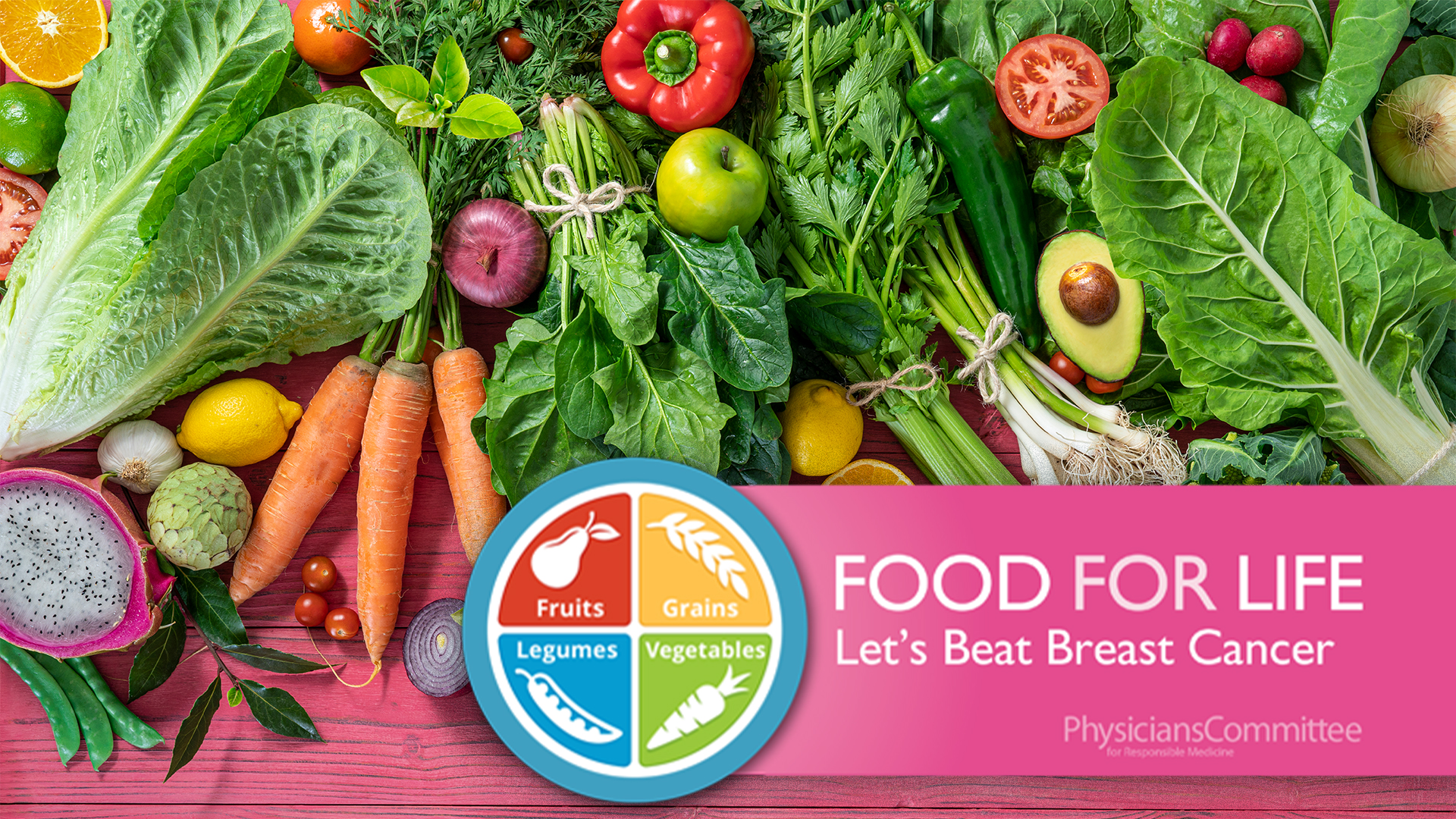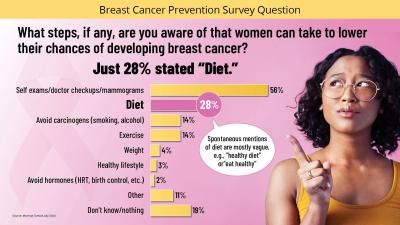Let’s Beat Breast Cancer Plant-Based Cooking Classes Taught Around the World to Honor Breast Cancer Awareness Month

WASHINGTON, D.C.—The Food for Life: Let’s Beat Breast Cancer plant-based nutrition and cooking class series will honor Breast Cancer Awareness Month with more than 50 classes taught in locations from Abu Dhabi to Alabama this autumn.
The intended audience for the Food for Life: Let’s Beat Breast Cancer classes is cancer survivors and their family and friends, as well as those looking to prevent the disease.
“Research shows that eating a low-fat plant-based diet rich in fruits, vegetables, grains, and beans can help lower breast cancer risk and is beneficial for breast cancer survivors,” says Stephanie McBurnett, a registered dietitian with the Physicians Committee for Responsible Medicine. “The Food for Life: Let’s Beat Breast Cancer classes empower participants to use this knowledge to take charge of their health with the foods that they put on their plates.”
Florida-based Food for Life instructor Jill Jennings, who is a breast cancer survivor and naturopathic physician, will teach several classes this October.
“Never, ever did I think I would get cancer,” said Jennings, who was diagnosed with breast cancer in 2020. “It rocked my world.”
After undergoing traditional and nontraditional treatment and switching from what most would consider a healthy diet to a whole food, plant-based diet, she became cancer free. Since her recovery, Jennings has become an advocate for plant-based eating and has committed herself to spreading the word about its benefits.
Following a diagnosis in 2015 of an aggressive form of breast cancer, or Can’tcer as she refers to it, Tiah Tomlin-Harris, a Food for Life instructor in Atlanta, Ga., had a lumpectomy, chemotherapy, and radiation. Not yet 40 years old at the time, she made an effort to live a more healthful lifestyle. When the cancer reappeared in 2019, however, she redoubled her efforts by immediately adopting a whole foods, plant-based diet, removing products that contain toxins or other dangerous chemicals from her home, and adding other complementary practices to her daily routine. Tomlin-Harris, now age 45, credits her dietary shift to the success she’s had reducing the size of one tumor, riding her body of another, and preventing others from forming.
Plant-based diets reduce the risk for breast cancer in postmenopausal women, according to research presented this summer at the annual meeting of the American Society for Nutrition. Women who followed a healthful, plant-based diet of fruits, vegetables, legumes, and whole grains the longest had the least risk of cancer compared to those who ate less healthy foods or animal products.
Designed by physicians, dietitians, and other health experts, Food for Life classes promote healthful plant-based eating based on the latest scientific research. Each class includes information about how certain foods and nutrients work to promote or discourage disease, cooking demonstrations of delicious and healthful plant-based recipes, and practical cooking skills and tips for incorporating healthful eating habits into daily life.
The classes are being taught in collaboration with the Physicians Committee’s Let’s Beat Breast Cancer campaign, which encourages four simple steps to make breast cancer less likely to occur and less likely to come back once diagnosed:
- Choose plant-based foods.
- Exercise regularly.
- Limit alcohol.
- Maintain a healthy weight.
Let’sBeatBreastCancer.org includes the science behind the four steps, resources, and a pledge that visitors can take to follow the four steps—and get a free e-cookbook and four emails packed with tips, recipes, and support.
Food for Life instructors are also leading more than three dozen Let’s Beat (the Drum for) Breast Cancer rallies across the United States this September and October. Join a rally near you.
Founded in 1985, the Physicians Committee for Responsible Medicine is a nonprofit organization that promotes preventive medicine, conducts clinical research, and encourages higher standards for ethics and effectiveness in education and research.








